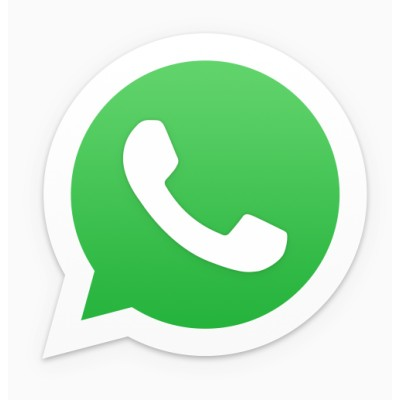The Messaging Battlefield: Signal vs. WhatsApp in the Wake of a Security Blunder
March 27, 2025, 4:49 am

Location: United States, California, Menlo Park
Employees: 51-200
Founded date: 2009
Total raised: $500K

Location: United Kingdom, England, London
Employees: 201-500
Founded date: 2013
Total raised: $46M
In the digital age, messaging apps are the lifelines of communication. They are the vessels through which we share secrets, plans, and emotions. Recently, a storm brewed in this ocean of apps. Signal, a rising star in secure messaging, found itself in the spotlight after a significant security blunder involving U.S. officials. This incident has reignited the debate over which app reigns supreme in privacy and security.
The incident unfolded when top officials from the Trump administration accidentally included a journalist in an encrypted chatroom. This chatroom was not just any conversation; it was a discussion about potential military action against Yemen's Houthis. The implications were serious. Democratic lawmakers quickly labeled the blunder a breach of national security. In the aftermath, Meredith Whittaker, president of the Signal Foundation, took to social media to defend her app’s security credentials.
Signal is often touted as the “gold standard” in private communications. It prides itself on being open-source and nonprofit. This means its code is transparent, allowing anyone to inspect it. Transparency breeds trust. Signal employs end-to-end encryption, ensuring that only the sender and recipient can read the messages. This is a fortress against prying eyes.
In contrast, WhatsApp, owned by Meta, has faced scrutiny for its data collection practices. While it claims to prioritize user safety, it collects metadata. This data can reveal who is messaging whom and how often. Critics argue that this information is a double-edged sword. It can be used to enhance user experience but also poses a risk to privacy. When pressed, WhatsApp insists it does not keep logs of personal messages. However, the mere collection of metadata raises eyebrows.
The fallout from the security blunder has sparked a surge in Signal's popularity. According to Sensor Tower, U.S. downloads of Signal increased by 16% in the first quarter of 2025 compared to the previous quarter. This is a clear indication that users are seeking alternatives. They want to feel secure in their communications. The appeal of Signal lies in its minimal data collection. Users are drawn to the idea of a messaging app that respects their privacy.
Whittaker's defense of Signal comes at a crucial time. The app has gained traction not just in the U.S. but also in Europe. As concerns about data privacy grow, so does the demand for secure communication tools. Signal’s rise is a testament to this trend. It has become the app of choice for those who prioritize privacy, including political figures from both sides of the aisle.
The messaging app war is heating up. Signal and WhatsApp are at the forefront of this battle. Each app has its strengths and weaknesses. Signal champions privacy, while WhatsApp focuses on user engagement and safety. The question remains: which app will emerge victorious?
The recent blunder has put Signal in the limelight, but it also highlights the vulnerabilities of digital communication. Even the most secure platforms can falter. The challenge for Signal is to maintain its reputation amidst scrutiny. For WhatsApp, the challenge is to reassure users that their data is safe.
As the dust settles, the implications of this incident extend beyond just messaging apps. It raises broader questions about digital security and privacy in an increasingly connected world. Users must navigate a landscape filled with choices, each with its own risks and rewards. The choice between Signal and WhatsApp is not just about features; it’s about trust.
In a world where data breaches are commonplace, the stakes are high. Users are becoming more discerning. They want to know who is watching and what data is being collected. The messaging app landscape is evolving. As users demand more transparency, companies must adapt or risk losing their audience.
The future of messaging apps is uncertain. Will Signal continue to rise as a privacy champion? Or will WhatsApp find a way to regain user trust? The battle lines are drawn. Users are the ultimate judges in this war. Their choices will shape the future of digital communication.
In conclusion, the recent security blunder involving U.S. officials has intensified the rivalry between Signal and WhatsApp. Signal stands firm as a beacon of privacy, while WhatsApp grapples with its data collection practices. As users navigate this complex landscape, the importance of secure communication cannot be overstated. The messaging app war is far from over, and the outcome will have lasting implications for privacy and security in the digital age.
The incident unfolded when top officials from the Trump administration accidentally included a journalist in an encrypted chatroom. This chatroom was not just any conversation; it was a discussion about potential military action against Yemen's Houthis. The implications were serious. Democratic lawmakers quickly labeled the blunder a breach of national security. In the aftermath, Meredith Whittaker, president of the Signal Foundation, took to social media to defend her app’s security credentials.
Signal is often touted as the “gold standard” in private communications. It prides itself on being open-source and nonprofit. This means its code is transparent, allowing anyone to inspect it. Transparency breeds trust. Signal employs end-to-end encryption, ensuring that only the sender and recipient can read the messages. This is a fortress against prying eyes.
In contrast, WhatsApp, owned by Meta, has faced scrutiny for its data collection practices. While it claims to prioritize user safety, it collects metadata. This data can reveal who is messaging whom and how often. Critics argue that this information is a double-edged sword. It can be used to enhance user experience but also poses a risk to privacy. When pressed, WhatsApp insists it does not keep logs of personal messages. However, the mere collection of metadata raises eyebrows.
The fallout from the security blunder has sparked a surge in Signal's popularity. According to Sensor Tower, U.S. downloads of Signal increased by 16% in the first quarter of 2025 compared to the previous quarter. This is a clear indication that users are seeking alternatives. They want to feel secure in their communications. The appeal of Signal lies in its minimal data collection. Users are drawn to the idea of a messaging app that respects their privacy.
Whittaker's defense of Signal comes at a crucial time. The app has gained traction not just in the U.S. but also in Europe. As concerns about data privacy grow, so does the demand for secure communication tools. Signal’s rise is a testament to this trend. It has become the app of choice for those who prioritize privacy, including political figures from both sides of the aisle.
The messaging app war is heating up. Signal and WhatsApp are at the forefront of this battle. Each app has its strengths and weaknesses. Signal champions privacy, while WhatsApp focuses on user engagement and safety. The question remains: which app will emerge victorious?
The recent blunder has put Signal in the limelight, but it also highlights the vulnerabilities of digital communication. Even the most secure platforms can falter. The challenge for Signal is to maintain its reputation amidst scrutiny. For WhatsApp, the challenge is to reassure users that their data is safe.
As the dust settles, the implications of this incident extend beyond just messaging apps. It raises broader questions about digital security and privacy in an increasingly connected world. Users must navigate a landscape filled with choices, each with its own risks and rewards. The choice between Signal and WhatsApp is not just about features; it’s about trust.
In a world where data breaches are commonplace, the stakes are high. Users are becoming more discerning. They want to know who is watching and what data is being collected. The messaging app landscape is evolving. As users demand more transparency, companies must adapt or risk losing their audience.
The future of messaging apps is uncertain. Will Signal continue to rise as a privacy champion? Or will WhatsApp find a way to regain user trust? The battle lines are drawn. Users are the ultimate judges in this war. Their choices will shape the future of digital communication.
In conclusion, the recent security blunder involving U.S. officials has intensified the rivalry between Signal and WhatsApp. Signal stands firm as a beacon of privacy, while WhatsApp grapples with its data collection practices. As users navigate this complex landscape, the importance of secure communication cannot be overstated. The messaging app war is far from over, and the outcome will have lasting implications for privacy and security in the digital age.
